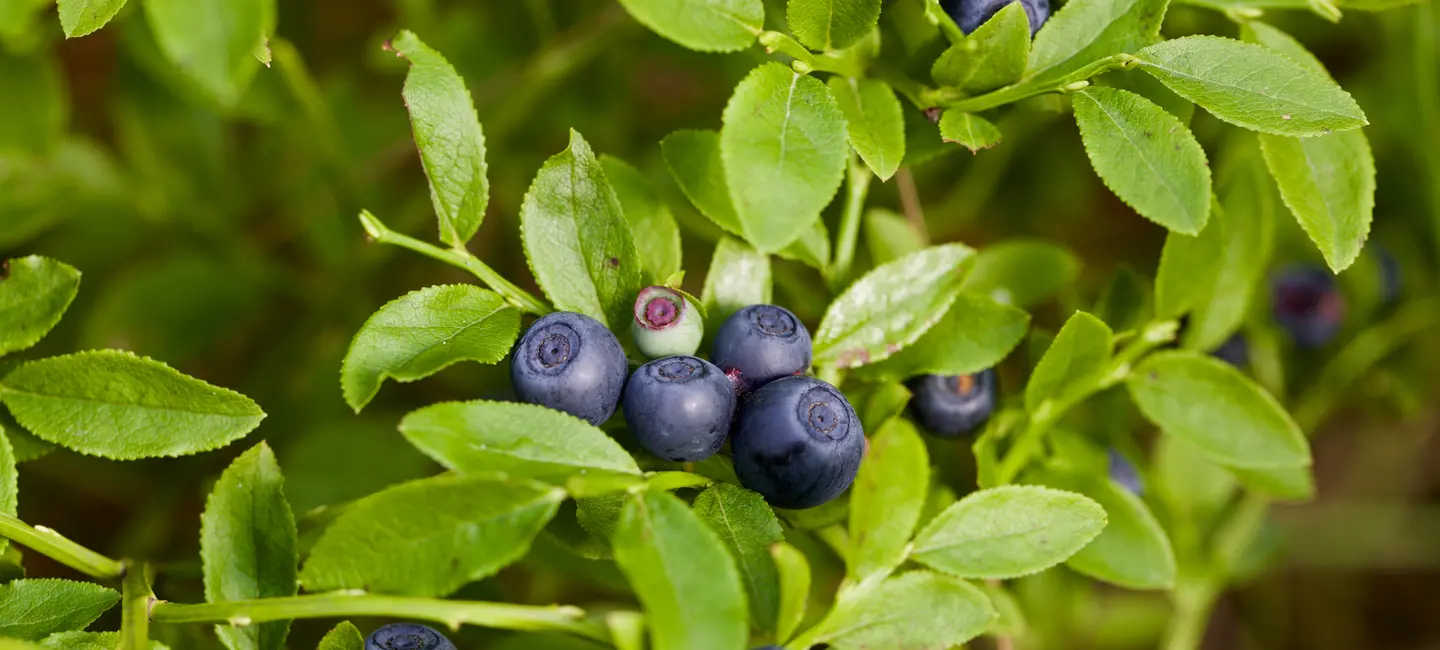
Bilberry (Vaccinium myrtillus) is a plant that produces berries similar to the American blueberry. The dried fruit and leaves are used as medicine.
Bilberry contains chemicals called tannins. They might help reduce swelling. The chemicals in bilberry leaves might also help to lower blood sugar and cholesterol levels, and improve circulation in people with diabetes.
People use bilberry for night vision, poor circulation that can cause the legs to swell, high blood pressure, and many other conditions. But there is no good scientific evidence to support any of these uses.
Is It Effective?
NatMed Pro rates effectiveness based on scientific evidence according to the following scale: Effective, Likely Effective, Possibly Effective, Possibly Ineffective, Likely Ineffective, Ineffective, and Insufficient Evidence to Rate.
- Ability to see in low-light conditions. Taking bilberry by mouth doesn't improve night vision in healthy people. It isn't clear if bilberry is helpful in people with night blindness.
There is interest in using bilberry for a number of other purposes, but there isn't enough reliable information to say whether it might be helpful.
Is it Safe?
When taken by mouth: Eating dried, ripe bilberry fruit in typical food amounts is likely safe for most people. Bilberry fruit extracts are possibly safe when taken in doses up to 160 mg daily for up to 6 months. But bilberry leaf is possibly unsafe to take in high doses or for a long time.
Special Precautions & Warnings:
Pregnancy and breast-feeding: Bilberry fruit is likely safe when consumed in small amounts as a food. There isn't enough reliable information to know if it is safe to use bilberry in the higher doses found in medicine when pregnant or breast-feeding. Stay on the safe side and stick with food amounts.
Surgery: Bilberry might affect blood sugar levels. This could interfere with blood sugar control during and after surgery. Stop taking bilberry at least two weeks before a scheduled surgery.
Erlotinib (Tarceva)
Interaction Rating=Moderate Be cautious with this combination.
Taking bilberry fruit along with erlotinib might reduce the effects of erlotinib. If you take erlotinib, talk to your doctor before taking bilberry.
Medications changed by the liver (Cytochrome P450 2E1 (CYP2E1) substrates)
Interaction Rating=Moderate Be cautious with this combination.
Some medications are changed and broken down by the liver. Bilberry might change how quickly the liver breaks down these medications. This could change the effects and side effects of these medications.
Medications for diabetes (Antidiabetes drugs)
Interaction Rating=Moderate Be cautious with this combination.
Bilberry might lower blood sugar levels. Taking bilberry along with diabetes medications might cause blood sugar to drop too low. Monitor your blood sugar closely.
Medications that slow blood clotting (Anticoagulant / Antiplatelet drugs)
Interaction Rating=Moderate Be cautious with this combination.
Bilberry might slow blood clotting. Taking bilberry along with medications that also slow blood clotting might increase the risk of bruising and bleeding.
Herbs and supplements that might lower blood sugar: Bilberry might lower blood sugar. Taking it with other supplements with similar effects might lower blood sugar too much. Examples of supplements with this effect include aloe, bitter melon, cassia cinnamon, chromium, and prickly pear cactus.
Herbs and supplements that might slow blood clotting: Bilberry might slow blood clotting and increase the risk of bleeding. Taking it with other supplements with similar effects might increase the risk of bleeding in some people. Examples of supplements with this effect include garlic, ginger, ginkgo, nattokinase, and Panax ginseng.
There are no known interactions with foods.
Bilberry fruit has most often been used by adults in doses of 160-240 mg by mouth daily for up to 6 months. Bilberry extracts are usually standardized to contain a certain amount of chemicals called anthocyanins. Products providing 120-160 mg of these chemicals daily have been used for up to 6 months. Speak with a healthcare provider to find out what type of product and dose might be best for a specific condition.
Airelle, Arándano, Bilberry Fruit, Bilberry Leaf, Black Whortles, Bleaberry, Blueberry, Brimbelle, Burren Myrtle, Dwarf Bilberry, Dyeberry, European Bilberry, European Wild Blueberry, Feuille de Myrtille, Fruit de Myrtille, Gueule Noire, Huckleberry, Hurtleberry, Mauret, Myrtille, Myrtille Européenne, Myrtilli Fructus, Raisin des Bois, Swedish Bilberry, Trackleberry, Vaccinium myrtillus, Whortleberry, Wineberry.
Information on this website is for informational use only and is not intended to replace professional medical advice, diagnosis, or treatment. While evidence-based, it is not guaranteed to be error-free and is not intended to meet any particular user’s needs or requirements or to cover all possible uses, safety concerns, interactions, outcomes, or adverse effects. Always check with your doctor or other medical professional before making healthcare decisions (including taking any medication) and do not delay or disregard seeking medical advice or treatment based on any information displayed on this website.
© TRC Healthcare 2024. All rights reserved. Use and/or distribution is permitted only pursuant to a valid license or other permission from TRC Healthcare.
